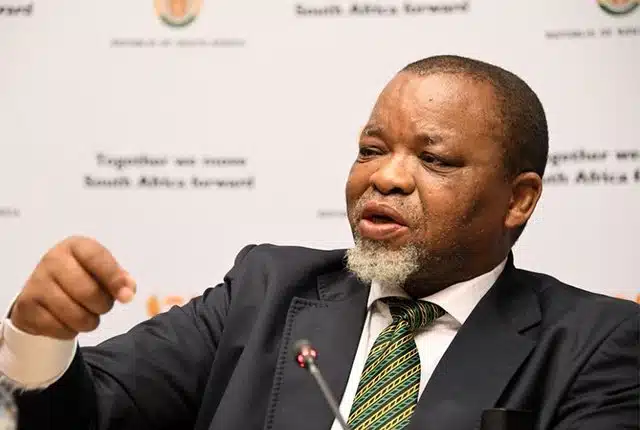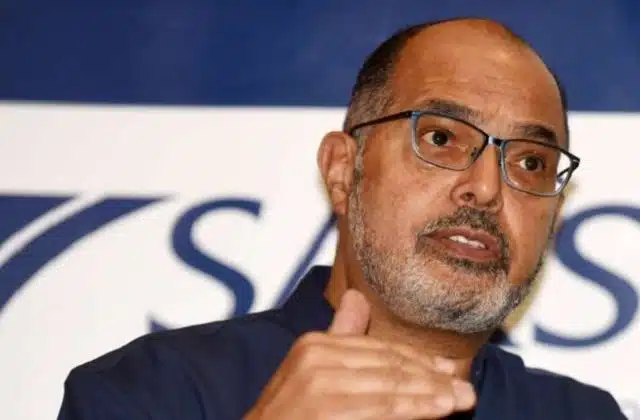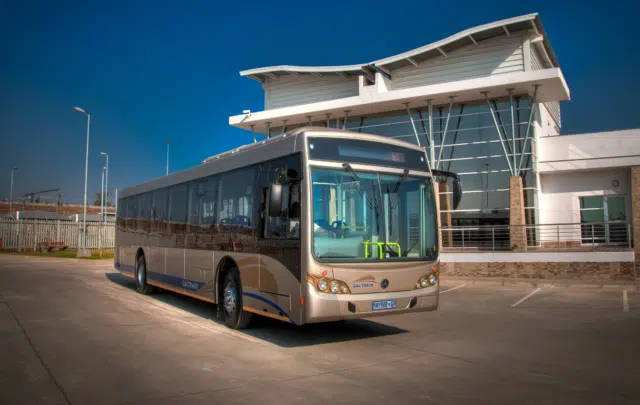
Government quietly setting up a new state-owned gas company: report
The South African government is quietly setting up a new state-owned company that will focus on gas lines between South Africa and Mozambique, a new report by amaBhungane reveals.
Energy minister Gwede Mantashe has been pushing for gas to be used to plug South Africa’s widening energy gap – this despite a global effort to move away from fossil fuels toward renewable energy programmes.
According to amaBhungane, the Central Energy Fund (CEF) is now in the process of establishing a new state-owned gas trading entity that will primarily source gas from Mozambique.
The entity will reportedly be part-owned by the CEF and its Mozambique counterpart, the Empresa Nacional de Hidrocarbonetos (ENH), and import gas to South Africa through existing pipelines.
The new state-owned entity will also reportedly work with Sasol, which has already earned billions from the sale of gas operations to the CEF.
Under what the CEF calls a ‘tripartite agreement’ between the stakeholders, Sasol – which needs to increase its gas stock as part of a move away from coal – could use the new state-owned entity to secure stock through this new bridge.
However, serious questions have been raised about the new entity – specifically, the process around its establishment, and the partnership with authorities in Mozambique, which may not have been okayed by National Treasury.
“CEF’s joint venture with (Mozambique counterpart) ENH does not appear to have been the result of an open tender. CEF has also not applied to National Treasury for permission to form a joint venture, as it is required to do,” amaBhungane said.
Further questions have been raised about Sasol’s role in the deal. Under the new partnership, more assets and associated risk in gas trade may be passed onto the state, amaBhungane said.
Big push into gas
The CEF’s stated strategy is to expand production and sales in gas and oil, anticipating revenue to triple to R34.7 billion by 2025. Gas explorations are key to this strategy.
In September 2021, Sasol and the CEF announced a partnership to accelerate the development of gas resources in South Africa, and in March 2022, the group said it would invest R1 billion into the country’s Virginia gas project as part of a renewable energy push.
“At the core of achieving our strategic mandate of ensuring the security of supply is domestic job creation and an approach to the just energy transition that fosters increasing domestic value addition,” the CEF said at the time of its Sasol deal.
“In this regard, gas remains a critical component in our country’s just energy transition journey, and our continued collaboration with Sasol in unlocking growth in the gas space remains critical for us in contributing to the achievement of an optimal energy mix.”
South Africa’s push into gas is also backed by president Cyril Ramaphosa and energy minister Gwede Mantashe, who have been proponents of adding the resource into the country’s energy mix. This, despite the position running counter to that of other top government officials, who are pressing for a quicker move toward cleaner sources of energy.
Mantashe has accused opponents of gas and oil exploration in South Africa of deterring investment in the country, saying that these processes cannot end and need to continue until there are results.
Ramaphosa, meanwhile, has talked up these energy sources – and has emphasised cooperation with Mozambique as a key energy partner.
“Mozambique remains one of South Africa’s top trading partners in the region, and there are several opportunities for expansion. South Africa is keen, in particular, to expand cooperation in the energy sector,” he said.
“Mozambique is endowed with significant volumes of natural gas. This can benefit not only the people of Mozambique and South Africa but also the rest of the SADC region. Energy security is vital to economic growth in our respective countries, and we look forward to significant progress towards securing and sustaining our energy needs.”
South Africa is in the midst of a critical energy shortage and needs to find 6,000MW of new energy generation in the near term to stem economic decline. While the focus is being placed on renewable energy sources – with 1,800MW anticipated to come online in the next five years – it has also turned to controversial projects.
A proposal to source 2,000MW of coal-powered energy from massive Turkish power ships has hit fierce opposition from competitors and environmentalists. And new gas and oil explorations have also drawn the ire of renewable energy proponents.
Other countries in the European Union have also tried to incentivise a move away from fossil fuels in South Africa, offering $8.5 billion in investment opportunities to step away from coal power, while simultaneously pursuing wind and solar energy projects in the country.
Read: UK looking to build wind farms and other new energy projects in South Africa



